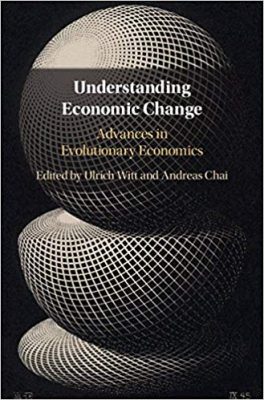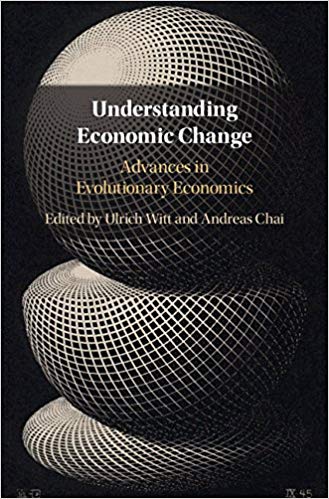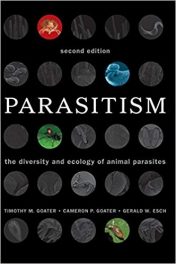 Editors: Ulrich Witt and Andrea Chai
Editors: Ulrich Witt and Andrea Chai
Publisher: Cambridge University Press – 398 pages
Book Review by: Sonu Chandiram
Evolutionary economics is a growing specialization in economics that helps explain why human beings think and act in certain ways already explored in biology, neuroscience, peer behavior, psychology, and social networks’ influence on us. A new branch of this discipline is emerging known as neuro-economics.
The editors Ulrich Witt and Andreas Chai point out in the Introduction:
“Now a brief review of the current literature in various subfields of economics reveals emerging synergies and increasingly blurred demarcation lines between the economic literature and neighboring disciplines. Some notable examples include the prevalence of psychological approaches to account for seemingly irrational behavior in behavioral economics.”
They also make these important points that they and others look into at a deeper level:
- The rise of neuro-economics that is building bridges between neuroscience and traditional models of decision-making
- Growing evidence that social networks and peer behavior can play a key role in individual preferences
- Emerging links between economic trade literature and economic geography
- Words and phrases once foreign to economics such as ‘dopamine’, ‘control group’, and ‘network effects’ have become part of the language of evolutionary economists
Twelve specialists including the two editors, in several aspects of economics from eight countries – Australia, Austria, Egypt, France, Germany, the Netherlands, Scotland, and the United States – wrote the 12 chapters of this book. We name them below to provide you an overview of the contents and coverage of this book:
- Part I – Introduction
- Evolutionary Economics: Taking Stock of Its Progress and Emerging Challenges
- Part II – Conceptual and Methodological Problems
- Missed Connections and Opportunities Forgone: A Counterfactual History of Twentieth-Century Economics
- Science, Technology and Knowledge: What Economic Historians Cab Learn from an Evolutionary Approach
- Generalized Darwinism in Evolutionary Economics: The Devil Is in the Detail
- Part III – Perspectives on Evolutionary Macroeconomics
- Macroeconomic Evolution: Long-Run Development and Short-Run Policy
- Evolutionary Micro-Funded Technical Change and the Kaldor-Verdorn Law: Estimates from an Artificial World
- Part IV – Advances in Explaining and Assessing Institutional Evolution
- Democracy, Rationality, and Religion
- On the Evolution of Organizational Governance: Divided Governance and Survival for the Long Term
- Strategic Interaction and Externalities: FD Games and Pollution
- Fairness in Urban Land Use: An Evolutionary Contribution to Law and Economics
- Part V – Evolutionary Perspectives on Welfare and Sustainability
- As Innovations Drive Economic Change, Do They Also Improve Our Welfare?
- Sustainable Consumption Patterns and the Malleability of Consumer Preferences: An Evolutionary Perspective
This is an important book on the new and growing field of evolutionary economics. The editors and authors are not only pioneers in this emerging discipline within economics, but they also discuss important issues essential to human survival and progress.
One of those issues is the unsustainable level of human’s consumption patterns, and the necessity to correct them so they become ‘pro-environmental preferences’. In the final chapter, Andreas Chai writes: “it may be necessary to promote sustainability by – among other things – influencing people’s current preferences ideally towards less material consumption-oriented forms of satisfaction.”
It has often been said that the only thing that is constant in life and in realty is change. In order to effect change in consumption, Chai writes that “information campaigns, advertisements ‘nudges’ or some functionally equivalent device maybe needed in order to overcome such locked-in consumption patterns. Influencing the demand side of the economy in this way may be a powerful tool to promote sustainable behavior.”
On the other hand, Chai writes: “pro-environmental preferences may emerge among consumers on their own accord.” If this happens, it would certainly be good.
Editors:
Ulrich Witt is Past Director of the Evolutionary Economics Group at the Max Planck Institute of Economics at Jena, Germany He has published a vast number of articles and books on evolutionary economics and is Editor-n-Chief of the Journal f Bioeconomics.
Andreas Chai is an applied economist and Head of Economics and Business Statistics Discipline at the Griffith Business School at Griffith University in Australia. Andreas has published in various economics journals, including the Journal of Economic Perspectives and the Cambridge Journal of Economics.







